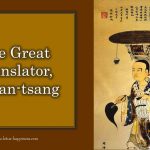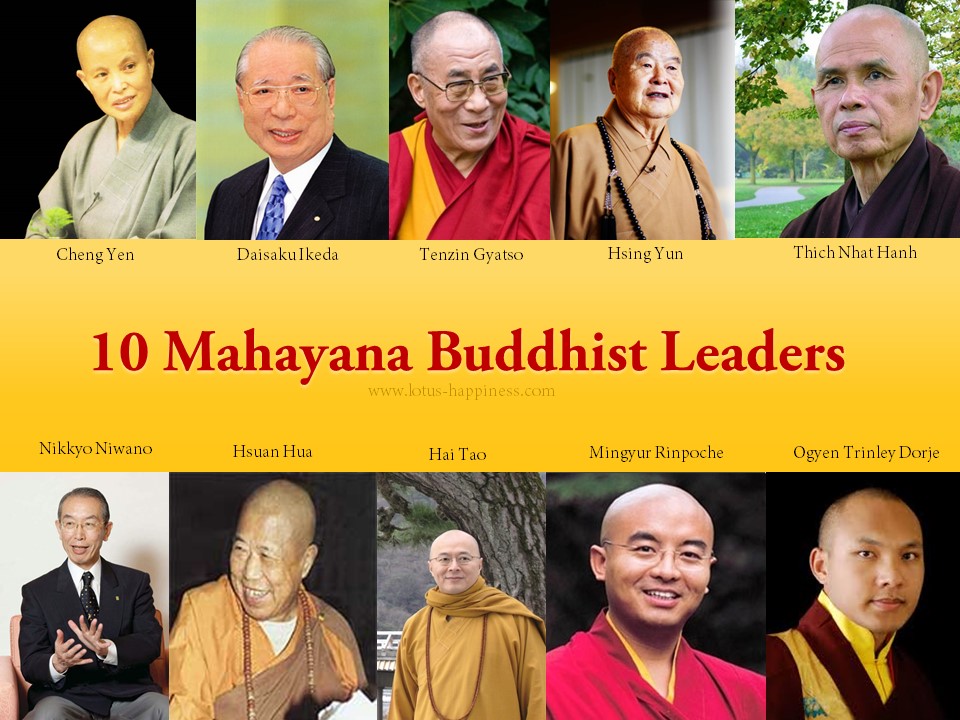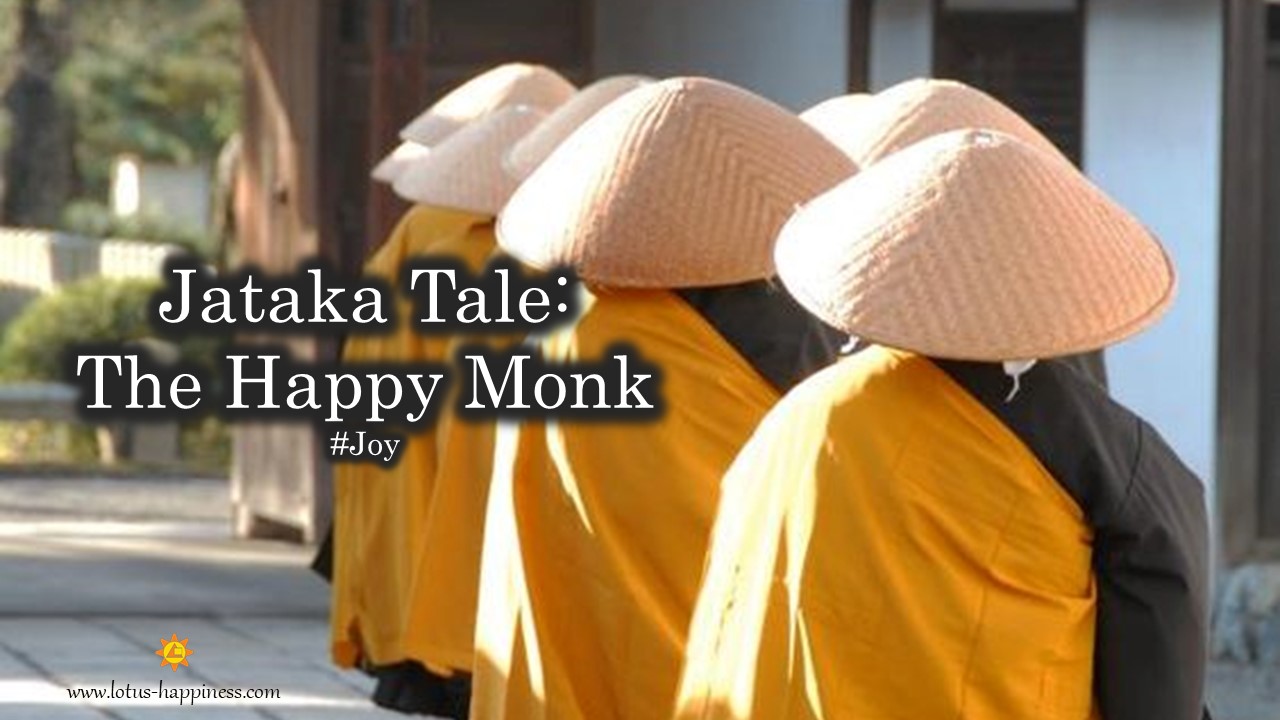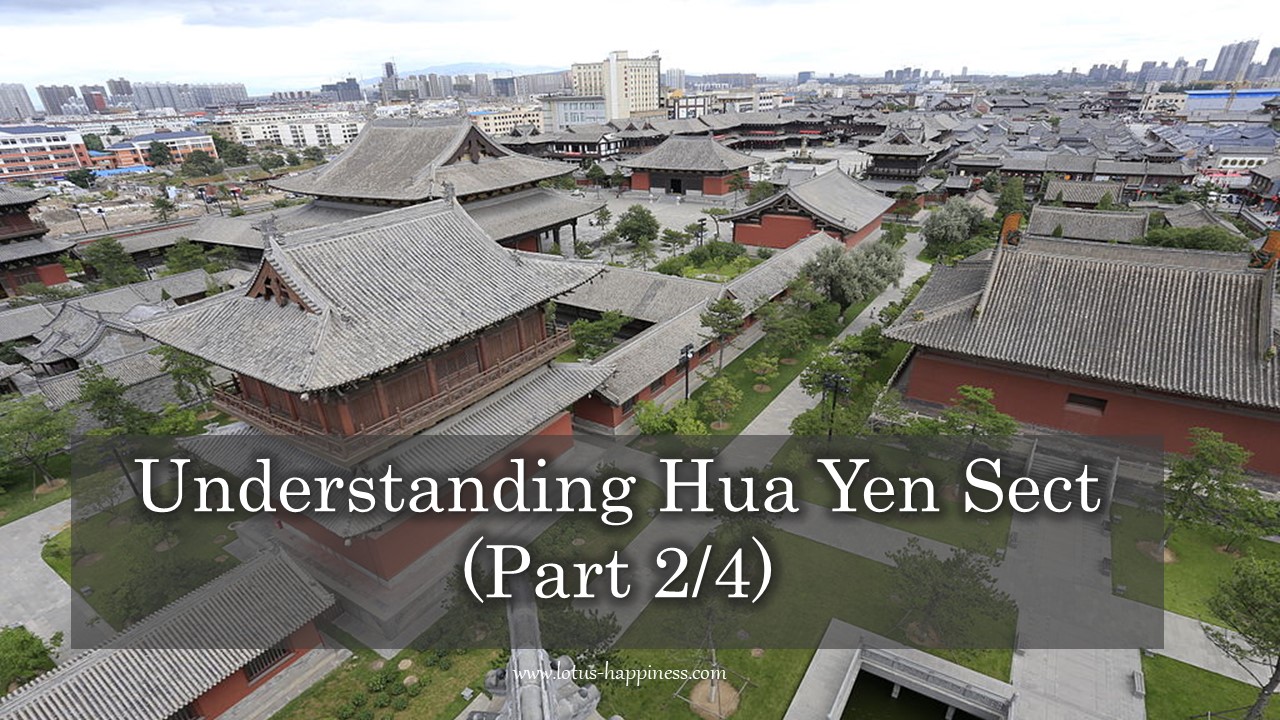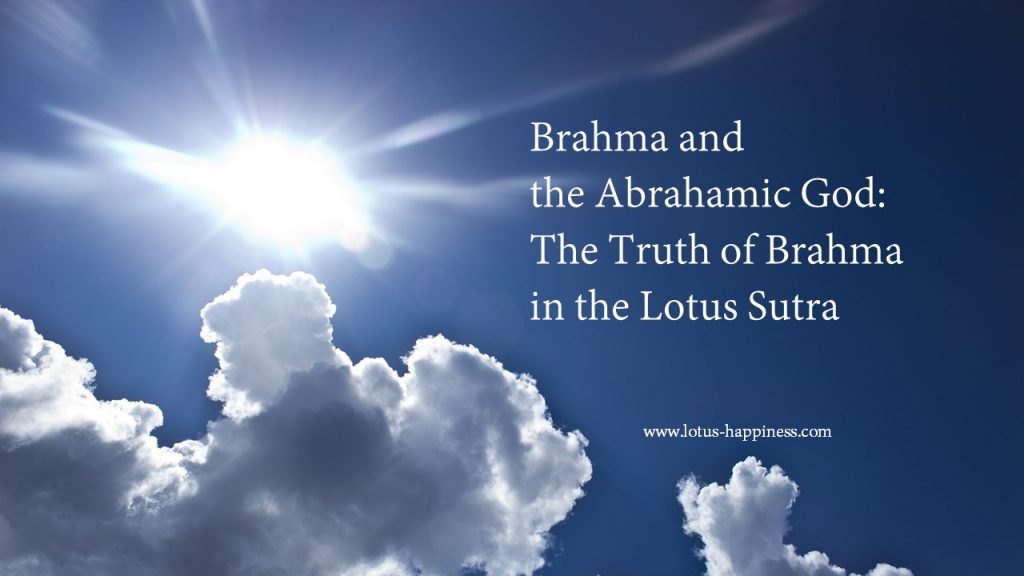
Brahma and the Abrahamic God: The Truth of Brahma in the Lotus Sutra
Followers of the Abrahamic faith as well as religions in which the concept of God is the essence of the teaching – Christianity, Islam, Judaism, Hinduism, Jainism etc – constitute about more than 60% of the world population. Hence, it is worthwhile we explore the concept of God through the lens of the Buddha’s teachings.
The meaning of “God” is immeasurable, depending on the context upon which it is mentioned upon. Generally, in Buddhism and the Lotus Sutra, God primary means “Deva” (heavenly beings) but it could also mean the Almighty, the Exalted One, the Ultimate Savior etc. Hence, the meaning is countless and it all depends on the context.
In the realm of Heaven, there are basically three types of heavenly beings, namely Brahma, Shakra, and Mara (Devil).
Brahma = Abraham = Ibrahim
It’s not difficult to perceive that the word Brahma (Hinduism), Abraham (Judaism & Christianity), and Ibrahim (Islam) are strikingly similar. There are many more similarities between the Brahma God in Hinduism as well as the Abrahamic God in all Abrahamic religions. One of which is the Hindu god Brahma and his consort Saraisvati, and the Jewish Abraham and Sarai. Even Christ and Krishna share many similarities. The contents of the sacred book of Old Testament across Judaism (Torah), Christianity (Bible), and Islam (Quran) are breathtakingly similar as well.
If you are interested to find out more about the similarities, here are some of the websites:
Brahma and Abraham: Divine Covenants of Common Origin
Who is aBrahm, iBrahm, Brahma, and Brahmins?
Specific similarities between the lives of Jesus and Krishna
Who is Brahma in the Lotus Sutra?
Buddhism has the power to explain all phenomena in the Universe. Our focus now is to explore and explain who is Brahma (梵), whose name appear in the Lotus Sutra for a whopping 101 times, and the relationship between Brahma and Buddha.
In the Lotus Sutra as well as many other sutras, many types of living beings are frequently mentioned. Brahma is a type of heavenly beings (known as Deva in Sanskrit) who dwells in the realm of Heaven. They attended the assembly to listen to the preaching of the Lotus Sutra by the Buddha as shown in the quote extracted in Chapter 1 – Introduction:
Meanwhile, the attendees in the assembly gained an unprecedented experience—they were the monks, nuns, lay male disciples, lay female disciples, heavenly gods, dragons, yakshas, gandharvas, asuras, garudas, kimnaras, mahoragas, humans, and non-human beings as well as the ordinary kings, such as the Holy King of Wheel-Turning. With their palms delightfully pressed together, they gazed at the Buddha with a focused mind. (LS 1:1.13)
In the Lotus Sutra, King Brahma is given the recognition as “Lord of the Saha World” or “Father of All Living Beings.” Here is the evidence:
Heavenly King Brahma, Lord of the Saha World, Great Brahma Shikhin, and Great Brahma Brilliant Light were present together with their twelve thousand heavenly sons. (LS 1:1.5)
Just as Heavenly King Great Brahma is the father of all living beings, so is the Lotus Sutra; it is the father of the worthy, the holy, the apprentice, the proficient, and those who aspire for the bodhisattva! (Lotus Sutra 23: 2.6)
Nonetheless, the Buddha is also known as the “Father of All Living Beings” as well. The Buddha is not just an ordinary person but an extraordinary divine being who chose to be born in the realm of Human to teach us the Law of Buddhahood. You may find out more about the many names of the Buddha in the Ten Epithets of the Buddha.
“Then, he declares to the great assembly: ‘I am Tathagata, Worthy of Worship, Perfect in True Wisdom and Enlightenment, Perfect in Knowledge and Conduct, Well-Liberated, the Omniscient, the Almighty, Master of Living Beings, Teacher of Heavenly Gods and Humans, Buddha-Bhagavat. For those who have not gained deliverance, I will deliver them. For those who have not been enlightened, I will enlighten them. For those who have not been peaceful, I will bestow peace for them. For those who have yet to attain nirvana, I will lead them to nirvana. I understand the present and future lifetimes just as they are. I am the Omniscient. I am the Omnispective. I know the Way, I open the Way, and I expound the Way. All of you heavenly gods, humans, and asuras, come to me and listen to my Law!’ (Lotus Sutra 5: 1.7)
Other than the Ten Epithets, the Buddha has the following appellations as found in the Lotus Sutra:
King of the Gods (天中王) LS 7: 3.18
God of Heavenly Gods (天中天 ) LS 1: 4.31
Great Benefactor(大施主) LS 22: 1.2
Hero of the World (世雄)LS 7:2.13
Father of the World (世父, 世间之父) LS 16:20, LS 3: 5.51
Father of All Living Beings (众生之父) LS 3: 4.18, LS 3: 4.26, LS 7: 3.21
Savior of the World (救世者) LS 21:2.1
There is Not One but Immeasurable Number Brahma in the Universe
There is not one Brahma, but innumerable Brahma, each with specific names in the ten directions. Some of these names that appear in the Lotus Sutra include Brahma King Shikhin, Brahma King Savior of All, Brahma King Great Compassion, Brahma King Magnificent Law.
In Chapter 7 of the Lotus Sutra, the Brahma in the ten directions found their palaces being brightened up by a resplendent light, which prompted them to investigate the source of the light. Eventually, they found the light – it was The Light emitted by the Buddha.
“At that moment, five hundred trillion Brahma kings traveled together to the north to investigate, bringing along with them their palaces and celestial flowers, which were kept in their robes. They saw Great Astuteness and Surpassing Wisdom Tathagata seated on a lion throne under a bodhi tree in his sanctuary of enlightenment, surrounded by reverent heavenly gods, dragon kings, gandharvas, kimnaras, mahoragas, humans, and non-human beings. They also witnessed the sixteen princes entreating the Buddha to turn the Wheel of the Law. (Lotus Sutra 7: 3.28)
“At once, the Brahma kings greeted the Buddha by performing a full prostration and circling him hundreds of thousands of times. They also scattered celestial flowers all over the Buddha until the flowers were piled up as high as Mount Sumeru. The flowers were also used as offerings to the bodhi tree. Having finished offering the flowers, each of them presented a palace to the Buddha, saying: ‘Have compassion for us! For our blessing and benefit, please accept our palaces as offerings!’ (Lotus Sutra 7: 3.29)
When the Brahma saw the Buddha, they immediately prostrated in front of the Buddha, encircled around the Buddha and scattered flowers on the Buddha as expressions of reverence and devotion. Some of these acts of reverence are so remarkably similar to the rituals performed by Muslims during Hajj as well as Brahmins during Tirupathi pilgrimage.
The Act of Praise is the Predominant Form of Reverence by the Brahma
The Brahma enjoy praising the Buddha with exuberance. In Chapter 7 of the Lotus Sutra, the four Heavenly King Brahma gave lavish praises and exultation to the Buddha.
To Brahma, praise is an expression of love, devotion, and reverence. This reminds me of the primary method of devotion by all Abrahamic religions. Christians say “Hallelujah” which means “Praise be to God” while the Muslims praise Allah through the 99 names of praise.
The Buddha’s teachings of Four Immeasurables, also known as Brahma Vihara (literally means the abode of Brahma), refer to the four qualities of loving-kindness, compassion, joy, and equanimity. According to the Metta Sutta, cultivation of the four immeasurables has the power to cause any practitioner to be reborn into the realm of Brahma (i.e. the realm of Heaven)
In the Lotus Sutra, all the Brahma praise the Buddha as the Ultimate Savior, Father of all living beings, Exalted King among the gods etc which are all strikingly similar to the praises given to the God of the Abrahamic faiths. In fact, one of the Ten Epithets of the Buddha is Teacher of Gods and Humans. The Buddha is always the teacher, never a messenger whose responsibility is to relay information from a higher authority because the Buddha is already a figure of authority himself and therefore the words “messenger” or “prophet” are non-existent in the Buddhist sacred texts.
The Buddha, as the Teacher of Gods and Humans, is qualified to teach the heavenly gods. The Brahma understands the truth from the Buddha but they cannot teach what the Buddha teaches. Thus, the Brahma praise the truth and virtues of the Buddha.
Here are some of the praises given by Heavenly King Brahma to the Buddha:
Rare is the Bhagavat,
difficult indeed to encounter one!
Endowed with immeasurable merits and virtues,
he is the Savior to deliver us all! (Lotus Sutra 7: 3.6)
‘The Hero of the World! The most eminent of humans!
We entreat you to expound the Law
so as to save living beings from torments
through the power of your great compassion!’ (Lotus Sutra 7: 3.11)
‘O Lord! The exalted King among the gods!
He who has a wonderful voice like the kalavinka bird.
He who is the most merciful and compassionate!
Now, all of us salute you with veneration! (Lotus Sutra 7: 3.18)
‘He is the Provenance of the World.
He is the Ultimate Savior.
He is the Father of all living beings.
He who brings blessings through his mercy and grace.
Because of our good fortune in previous lifetimes,
we are able to meet the Bhagavat in this lifetime!’” (Lotus Sutra 7: 3.21)
Conclusions
From the evidence in the Lotus Sutra and many other sources of primary and secondary evidence-based research, there is a high likelihood that the Brahma (Hinduism), Abraham (Christianity) and Ibrahim (Islam) belong to the same heavenly being – Brahma – who dwells in the realm of Heaven.
To differentiate from the Buddha’s teachings and Abrahamic faith, many Buddhists vehemently assert that a Creation God does not exist. This is absolutely true because the Buddha reiterates his teaching of the Law of Cause and Effect not only in the Lotus Sutra but many of his other sutras as well.
However, judging from the Ten Epithets of the Buddha and the lavish praises given by the Heavenly King Brahma to the Buddha, it may not be surprising if the meaning of “God” might actually be referring to God-tama Buddha himself.
“Did he create the universe? No. Is he omniscient? Yes. Is he omnipotent? It depends on what you mean. Is he eternal? Sort of. Is he God? You decide.” – Robert E. Buswell Jr, Distinguised Professor of Buddhist Studies, UCLA






